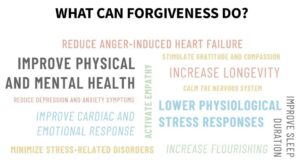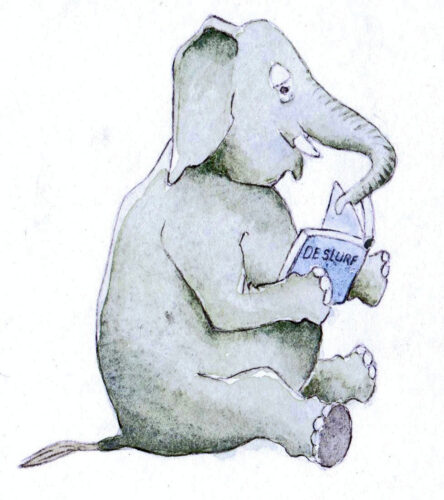A blog by Joyce Cordus
Last weekend I was at the North Sea Jazz festival. There was one singer, Lizz Wright, who moved me to tears. It wasn’t just her dark, warm and smooth voice that touched me. What she sang about also often moved me. She sang, for example, the song Sweet feeling. A song about infidelity and its effects on a relationship. Then what kind of infidelity is really not even important. From that song, the following words stuck with me:
‘Please forgive me
For doing you wrong
Oh, I hope you will
I’m so sorry
For all the pain I put you through
But I still got the same sweet feeling for you’
By the way, I notice that songs are quite often and easily about forgiveness. In everyday life, it seems different. There it is rather seen as a “fuzzy” subject. The science on forgiveness, however, shows something quite different. For more than 20 years, Fred Luskin has been exploring the scientific and psychological value of forgiveness with his Stanford Forgiveness Project. He teaches participants in that project, in one-and-a-half-hour sessions, how to get rid of their deep-seated anger, and forgive the perpetrators. With startling results. For example, after attending his training, a group of women whose sons had been murdered were found to be significantly better able to forgive the killers. It also became clear that the feeling that something had been done to them had decreased significantly: from 8.6 to 3.4 on a scale of 1 to 10. Women were also found to be significantly more optimistic. Among participants in another group, their depressive feelings decreased by 20 percent. Stress symptoms such as dizziness, head and abdominal pain even decreased by 35 percent.
 Here we are talking about participants who have experienced something that is plainly life-disrupting. No wonder they have trouble forgiving. The “miracle” is that even in those cases forgiveness turns out to be possible which, moreover, turns out to have an enormous positive impact on the mental and physical well-being of the participants.
Here we are talking about participants who have experienced something that is plainly life-disrupting. No wonder they have trouble forgiving. The “miracle” is that even in those cases forgiveness turns out to be possible which, moreover, turns out to have an enormous positive impact on the mental and physical well-being of the participants.
For that, though, you have to go through a whole process. According to Luskin, that process goes from allowing yourself the grief to telling a new story about yourself that is not (no longer) about victimization. So forgiveness is possible and in our time perhaps more than necessary. In an interview with The Correspondent, Luskin says, “The world yearns for forgiveness to end the bitterness, the victimization and the resentment that are ruining the lives of so many people. All those ruined lives, all that hatred everywhere … These are mostly wounds that have not healed. People have a great need to let go” (see www.decorrespondent.nl for the interview titled “Science shows that forgiveness really does heal” (translated from Dutch language).
Sooner or later, we all face moments and experiences that are (have been) extra difficult or painful for us and from which we suffer. That is often quite a challenge. After all, as non-perfect human beings, we live in a complicated society. In this, we ourselves sometimes make mistakes, slips or make unhelpful decisions – in hindsight – while also dealing with the imperfection of others in their behavior. And we must also be able and dare to face the pain of the other. In the words of Lizz Wright, “I’m so sorry for all the pain I put you through.
All of this, however, requires a significant degree of mindfulness, attentiveness. When we (learn) to live with mindfulness as well as forgiveness, we live with more ease and suppleness. That’s why Frits Koster and I developed the Mindfulness-Based Training in Forgiveness (MBTF). Hoping that forgiveness will become an important theme not only in music but also in everyday life.
Joyce Cordus, July 15, 2024

